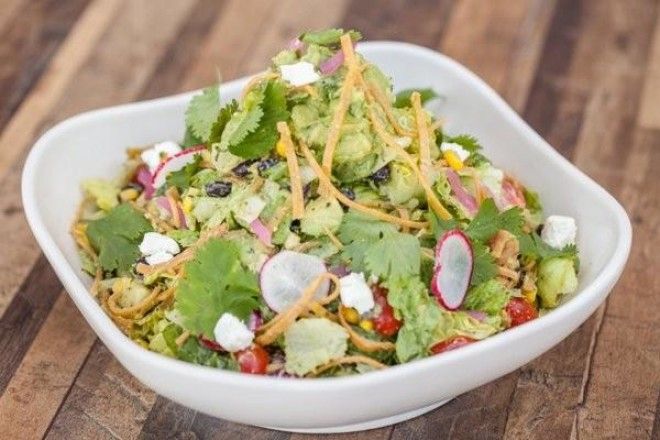It is unfortunate that life passes by so many people without them realizing what happened; their minds are insistently focused on other things besides what is occurring right now. They fail to live in the present moment. Mindfulness helps you appreciate the present moment and flourish in it. It arms you with the ability to “be” in this moment as opposed to constantly feeling pressured to “do” in another one.
This article will concentrate on mindful eating as one beneficial mindfulness practice. Eating is something you need to survive, but unfortunately for many people, it becomes an automated task. Without awareness poor eating habits can be created, which in turn, can cause a negative relationship to be formed with the food you eat. Mindful eating will shift your perspective about eating; instead of eating out of merely need and automation, you will begin to relish eating more and being grateful for the ability and opportunity to do so.
1. Enhances Senses

Mindful eating enhances all of your senses not just your taste buds. Mindful living is about engaging and observing your sensory experiences in the moment. Before you eat take the time to engage all of your senses. If possible observe what your food looks like. Notice the colors and patterns of the food you are about to consume. Touch your food and notice the various textures. Listen to your food to see if it makes any unusual sounds. For example, raisins make a crinkling noise when you put your ear up to them. Smell your food and notice how your salivary glands react to this sensation. Finally begin to eat and focus your attention on the sensations you experience while chewing your food slowly. Taking the time to stimulate all of yours senses might be something you take for granted anyway. Eating mindfully is an advantageous way to incorporate this into your field of awareness.
As you practice mindful eating and learn how to enhance your sense, you will most likely notice a shift in how you live your life. Hopefully you will embrace the sense of freedom that allows you to live more presently and fully.
2. Savor the Flavor

I have been a major culprit in the past of inhaling my food and not enjoying the taste of it. This is especially apparent after exercise when my body is craving nourishment. I often don’t have the patience to eat slowly because my only objective is to fill up with as much food as quickly as possible. I don’t suggest utilizing this habit of eating. Eating is supposed to be a gratifying experience. How can you savor the food you are eating and truly taste it if you are concentrated on merely shoving as much as you can down your gullet? Chew slowly. Observe what the food feels like in your mouth. Put your fork, knife or spoon down from time to time while you are eating so you can be completely present with what you are doing.
Also, if possible, refrain from watching T.V. or reading your phone or even talking. Place all of your attention on eating. I think you will notice that food has never tasted so delicious. When you place all of your awareness and attention on eating you begin to form a more appreciative relationship with the food you eat. It is not just about satisfying your desire to eat because you will start to feel grateful for what you are eating and the people who helped make that possible.
3. Eat Smaller Portions

Eating healthily is about eating the necessary sized portion. Many people overeat as a result of not paying attention to what they are eating and how much food they consume. They eat unconsciously not noticing how much they are consuming. By eating mindfully you will only eat until you have had your fill. You will begin to observe the feelings of being satisfied. You will know when you have had enough to eat because you are consciously paying attention to what you are doing. When you consume your food mindfully and slowly there is no need to stuff yourself. You will gain awareness of your bodily sensations and you will understand the signs of being sated more clearly.
4. Live With a Healthy Weight

Mindful eating helps with portion control. Controlling your portions ensures you will eat only as much as your body requires. Many people eat as a coping mechanism for stress, depression, or grief. They eat even though they aren’t hungry. Eating mindfully helps you eat the right amount every time you consume food. If you are overweight, over time, portion control will help you lose unnecessary weight. As you continue to eat mindfully, you will be able to keep the weight off and live with a healthy and fulfilled body. Paying attention to the sensations from your body is vitally important. Only through mindful eating can you really gain a sense of being full. Your mind may try to convince you otherwise, but only your body will know if you have eaten enough or not.
5. Live Presently

So what is mindfulness really about? Why is eating mindfully so important and necessary to a happy existence? Practicing mindfulness becomes habitual. Just as your negative habits cause you to feel lousy at times, building beneficial habits can help your quality of life increase. Mindful eating is one merely one way you can invigorate your life with contentment and joy. You only experience this because you learn how to be in the present moment, disregarding the constant thoughts that arise about the past and the future.
As I stated previously, eating is something many people take for granted. You might eat but do you really enjoy the experience? How often do you eat without doing anything else? How often are you present with your food? Your well-being is dependent on your ability to be present with whatever you are doing. Practicing mindful eating promotes your ability to live in the moment. This is crucial because this is what life is all about! Enjoying the moment to moment experiences without giving validation to the judgments or negative thoughts swirling around in your mind. There are many mindfulness practices you can undertake that will assist in living more presently. I think eating mindfully is one the most effective practices you can learn. You probably won’t be able to eat every meal mindfully in the beginning, but with practice it will become easier and more enjoyable.

